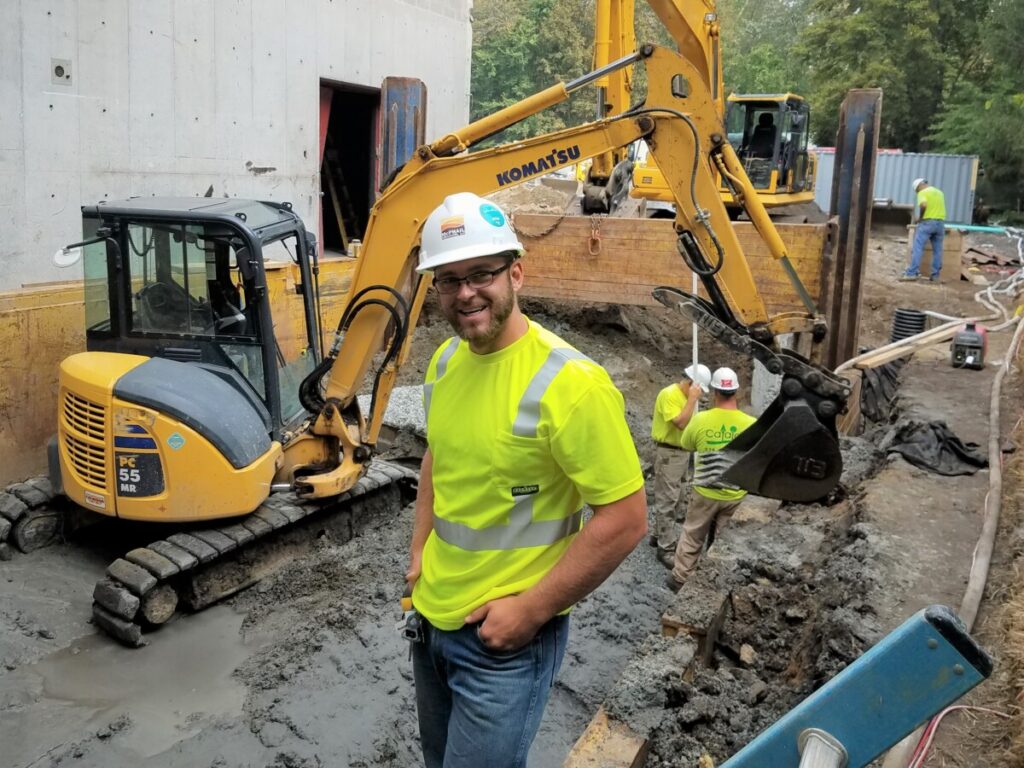Vital Qualities of Effective Civil Consulting Engineers
Vital Qualities of Effective Civil Consulting Engineers
Blog Article
An In-depth Summary of the Secret Duties of Geotechnical Designers in Website Characterization and Ground Renovation Techniques for Design Solutions
Geotechnical engineers are important to the successful execution of design jobs, tasked with the crucial responsibilities of website characterization and the application of ground enhancement techniques. Their work involves a thorough evaluation of subsurface conditions, utilizing various testing techniques to determine dirt and rock buildings. This fundamental expertise not just educates design choices but likewise alleviates possible risks associated with ground instability. As we explore the multifaceted roles of these experts, it ends up being obvious how their expertise forms the safety and effectiveness of design remedies. What particular techniques and analyses attract attention in this vital discipline?
Role of Geotechnical Engineers
Geotechnical designers play a crucial duty in the design and building and construction of facilities by examining the actions of soil and rock beneath the surface area - geotechnical eng. Their obligations encompass examining subsurface conditions to inform design choices that make certain structural security and safety. By carrying out thorough evaluations of dirt buildings, consisting of shear toughness, compressibility, and leaks in the structure, geotechnical engineers offer critical information that influences the selection of appropriate building materials and techniques
In enhancement to examining soil mechanics, geotechnical designers are entrusted with identifying prospective hazards such as landslides, sinkholes, and ground settlements. Their proficiency assists reduce dangers related to these geotechnical phenomena, thus protecting both the setting and public security. They additionally collaborate very closely with various other engineering self-controls, making sure that geotechnical considerations are incorporated right into general project layout.
Additionally, geotechnical engineers take part in the assessment of existing structures, giving referrals for retrofitting and fixings when essential. Their detailed understanding of soil-structure interaction is essential for the advancement of lasting infrastructure solutions. Overall, the duty of geotechnical engineers is important to the successful awareness of construction jobs, guaranteeing they are risk-free, sturdy, and certified with regulatory standards.

Website Characterization Processes
Efficient site characterization procedures are essential for recognizing the subsurface conditions that influence task layout and implementation. Geotechnical engineers use a methodical technique to collect, examine, and interpret data regarding rock, dirt, and groundwater qualities. This process begins with a comprehensive review of existing literary works and historic site data, supplying insights right into previous site problems and potential obstacles.

Data evaluation follows fieldwork, where engineers make use of geostatistical methods to translate searchings for and develop geological models. With attentive site characterization, geotechnical engineers lay the groundwork for effective task execution, enhancing and lessening unpredicted complications resource allotment.
Dirt and Rock Screening Approaches
While understanding subsurface conditions is critical, the selection of suitable soil and rock testing approaches is similarly essential for accurate analysis and design. Geotechnical designers use a selection of screening strategies to evaluate the physical and her comment is here mechanical residential properties of dirt and rock products.
Lab tests, such as Atterberg limitations, grain dimension analysis, and unconfined compressive stamina examinations, give vital data on soil actions under various wetness problems and packing circumstances. These tests assist identify soil classification and predict negotiation or shear toughness attributes essential for foundation layout.
In-situ screening techniques, including Standard Infiltration Examinations (SPT), Cone Infiltration Tests (CPT), and pressure meter examinations, permit designers to gather data straight from the ground. These techniques provide important understandings right into the dirt's density, uniformity, and stratification without the requirement for substantial sampling.
Rock screening commonly includes core sampling and research laboratory analysis to assess homes like uniaxial visit their website compressive strength and rock top quality designation (RQD) With each other, these dirt and rock testing approaches allow geotechnical engineers to make enlightened choices relating to site-specific challenges, guaranteeing the safety and security of engineering solutions.
Ground Enhancement Techniques
Ground renovation methods are vital for enhancing the engineering residential or commercial properties of dirt, thus raising its load-bearing capability and lowering settlement. These techniques are crucial in attending to obstacles presented by problematic or weak dirts, which can significantly affect the stability and longevity of structures.
Numerous ground renovation techniques are employed, including compaction, grouting, and dirt stablizing. Grouting, on the various other hand, involves injecting a fluid material right into the ground to load gaps and enhance soil communication.
Dirt stabilization incorporates a range of techniques, from chemical ingredients to mechanical therapies, aimed at improving the soil's resistance to disintegration and contortion. Methods such as lime stablizing or concrete mixing change the buildings of the dirt at a bit level, enhancing its overall efficiency.
Importance of Geotechnical Analyses
Geotechnical assessments play an essential role in the preparation and style of engineering tasks, as they supply vital information concerning the subsurface conditions. Recognizing dirt homes, rock formations, groundwater degrees, and prospective geohazards is essential for making sure the stability and security of structures. These assessments make it possible for engineers to make enlightened decisions pertaining to site option, style criteria, and building methodologies.
The value of geotechnical assessments expands beyond initial task stages; they have a peek at this site are crucial in danger management and price effectiveness. By determining prospective issues early, such as soil settlement, incline instability, or extreme groundwater, engineers can create appropriate reduction strategies, lowering the possibility of structural failures and costly delays. These analyses sustain compliance with regulative demands and boost the sustainability of design practices.

Verdict
To conclude, geotechnical engineers are vital to making certain the safety and security and stability of design jobs through thorough website characterization and ground renovation strategies. geotech engineer. Their systematic strategy to examining subsurface conditions, combined with their recommendations for reliable ground adjustment, significantly boosts soil residential properties and load-bearing capability. The know-how of geotechnical designers not only promotes enlightened project planning but additionally guarantees conformity with laws and fosters effective communication amongst stakeholders, inevitably adding to successful engineering results
Geotechnical designers play a crucial role in the style and building of framework by analyzing the behavior of soil and rock below the surface. By carrying out in-depth evaluations of dirt homes, consisting of shear compressibility, strength, and permeability, geotechnical designers give crucial data that influences the selection of suitable building products and strategies.
In addition to examining dirt mechanics, geotechnical engineers are charged with recognizing possible threats such as landslides, sinkholes, and ground negotiations. Geotechnical designers use a systematic approach to collect, review, and analyze information relating to dirt, rock, and groundwater features. By recognizing possible problems early, such as soil negotiation, incline instability, or excessive groundwater, designers can create suitable mitigation approaches, minimizing the possibility of architectural failures and costly hold-ups.
Report this page